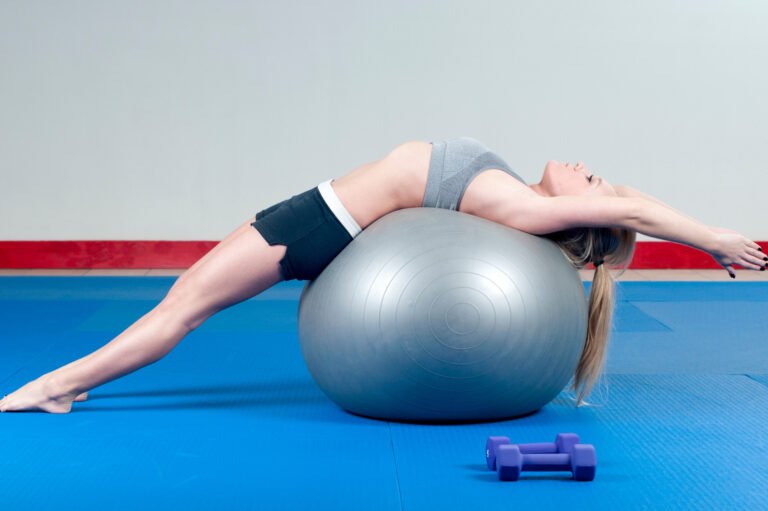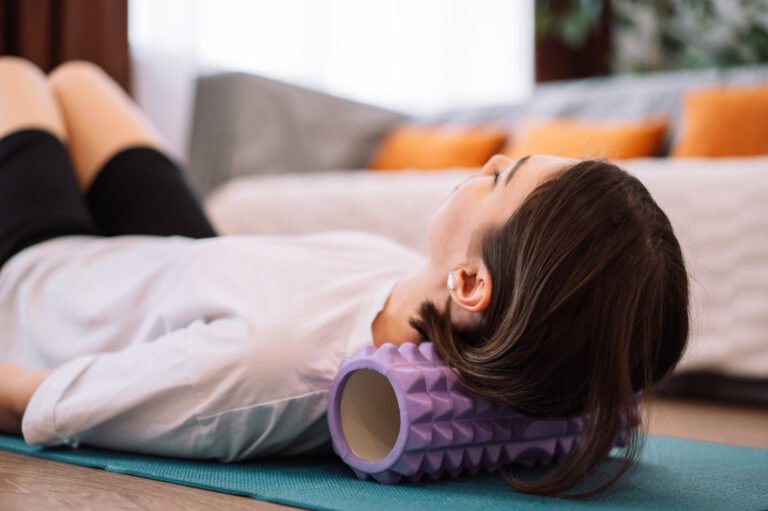The Science of Recovery: Why Rest is Essential After Exercise
Pragyan Dash
July 11, 2023. 4 minute Read
"
In this article, we will explore the importance of post-exercise recovery, its physiological and psychological benefits, and provide practical tips to optimize your recovery routine.
Recovering after exercise is crucial not just for athletes but anyone who trains to optimize their performance and maintain their overall well-being.
When athletes train or compete, they subject their bodies and minds to significant stress and strain. This stress can lead to
- Fatigue
- Muscle Damage
- Inflammation
- Mental Exhaustion
Recovering after exercise is crucial not just for athletes but anyone who trains to optimize their performance and maintain their overall well-being.
When athletes train or compete, they subject their bodies and minds to significant stress and strain. This stress can lead to
- Restore the Body
- Enhance Healing
- Replenish Energy
- Improve Athletic Performance

1. What is the Science Behind Recovery?
When we engage in physical activity, our bodies experience stress and strain. During exercise, our muscles undergo micro-tears, energy stores get depleted, and various physiological processes are activated.
It is during the recovery phase that our bodies adapt, repair, and grow stronger.
Adequate recovery allows for the
- Restore the BodyRestoration of energy stores
- Repair of damaged tissues
- Reduction of inflammation
- Regulation of hormone levels
Without proper recovery, we risk
- Overtraining
- Fatigue
- Decreased performance
- Increased susceptibility to injuries
- Rest and Active Recovery
rest is a fundamental aspect of post-exercise recovery.
Allowing your body time to recuperate and recharge is essential for optimal performance.
Incorporating rest days into your training routine and adjusting the intensity of workouts can prevent overtraining and promote recovery.
Additionally, engaging in active recovery exercises, such as light jogging, swimming, or cycling, can enhance
- Blood flow
- Reduce muscle soreness
- Facilitate the removal of metabolic waste products
8 Reasons why rest and recovery are important after exercise
Let’s get Started!
1. Take Proper Rest and Sleep
Adequate rest and quality sleep are fundamental for recovery.
During sleep, the body undergoes essential processes such as tissue repair, muscle growth, hormone regulation, and energy replenishment. Athletes should aim for 7-9 hours of sleep per night and incorporate rest days into their training schedules to allow for proper recovery.
Establishing a consistent sleep routine, creating a comfortable sleep environment, and practising relaxation techniques before bed can improve sleep quality and aid in post-exercise recovery.
2. Have Proper Nutrition
Consuming a balanced diet that includes the right mix of carbohydrates, proteins, and healthy fats is crucial for recovery. These nutrients provide the energy required for muscle repair and growth, reduce inflammation, and support overall bodily functions.
Optimal nutrition aids in recovery by replenishing depleted glycogen stores, repairing damaged tissues, and promoting overall well-being.
3. Stay Hydrated
Proper hydration is vital for recovery and optimal athletic performance. Athletes should maintain adequate fluid intake to replace the water and electrolytes lost through sweat during exercise.
Staying hydrated supports optimal muscle function, helps regulate body temperature, aids in nutrient absorption, and facilitates the removal of metabolic waste products.

4. Active Recovery
Engaging in low-intensity activities on rest days, such as light jogging, swimming, or cycling, promotes active recovery.
These activities increase blood flow to the muscles, which helps flush out metabolic waste products and deliver oxygen and nutrients for healing and repair.
Active recovery also reduces muscle soreness and stiffness.
5. Stretching and Flexibility Exercises
Incorporating stretching and flexibility exercises into a training routine helps improve joint mobility, reduce muscle tightness, and prevent muscle imbalances.
Stretching aids in the recovery process by increasing blood flow to the muscles, reducing post-exercise muscle soreness, and promoting overall flexibility.

6. Massage and Foam Rolling
Utilising massage techniques and foam rolling can help release muscle tension, improve circulation, and expedite recovery.
Massages and foam rolling can alleviate muscle soreness, reduce inflammation, and enhance flexibility.
These techniques can be particularly beneficial for athletes with specific muscle imbalances or areas of tightness.
7. Contrast Therapy
Alternating between hot and cold treatments, such as contrast showers or using ice packs and heat pads, can enhance recovery.
Cold treatments reduce inflammation and help numb pain, while heat treatments increase blood flow and promote relaxation.
Consulting with a healthcare professional can provide guidance on the appropriate duration and frequency of contrast therapy.

8. Mental Relaxation
Recovery techniques should not only focus on physical aspects but also prioritise mental relaxation.
Incorporating techniques such as deep breathing, meditation, or mindfulness exercises can reduce mental stress and enhance overall well-being.
Mental relaxation techniques contribute to recovery by alleviating anxiety, improving focus, and promoting psychological balance.
Final Thoughts
In conclusion
It’s important to note that recovery strategies should be tailored to individual needs and preferences.
Each athlete may respond differently to various techniques, so it’s crucial to listen to the body and adjust accordingly.
Consulting with professionals like coaches, trainers, or sports medicine experts can help develop a personalized recovery plan that aligns with specific goals and requirements.
By prioritizing recovery, athletes can optimize their performance, reduce the risk of injuries, and maintain long-term physical and mental well-being.
Subscribe to new post
The One Liner
Useful Links
Order Related Queries
Useful Links
Order Related Queries



